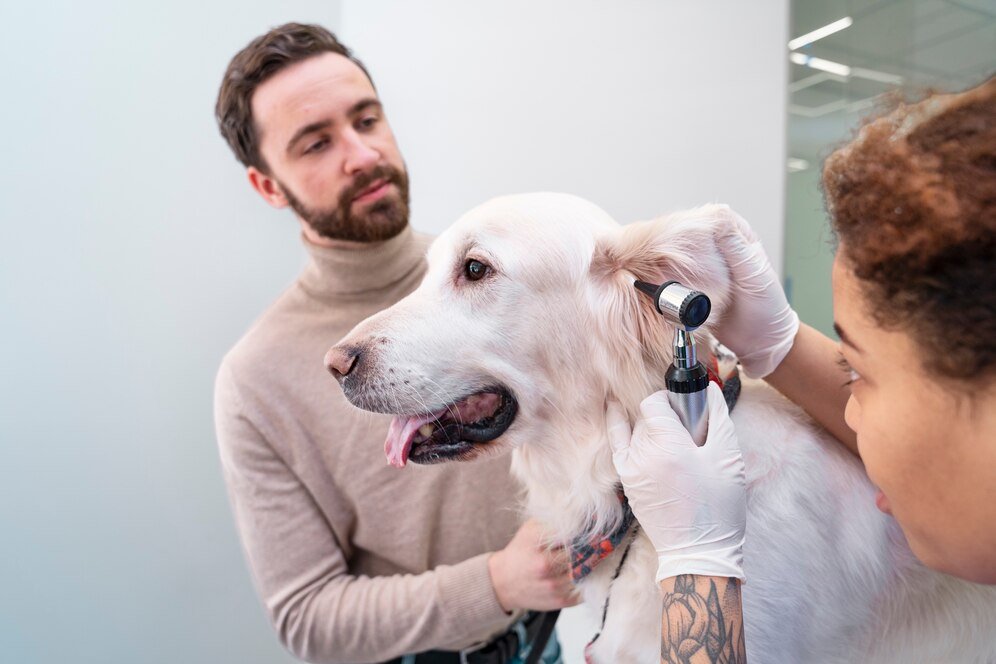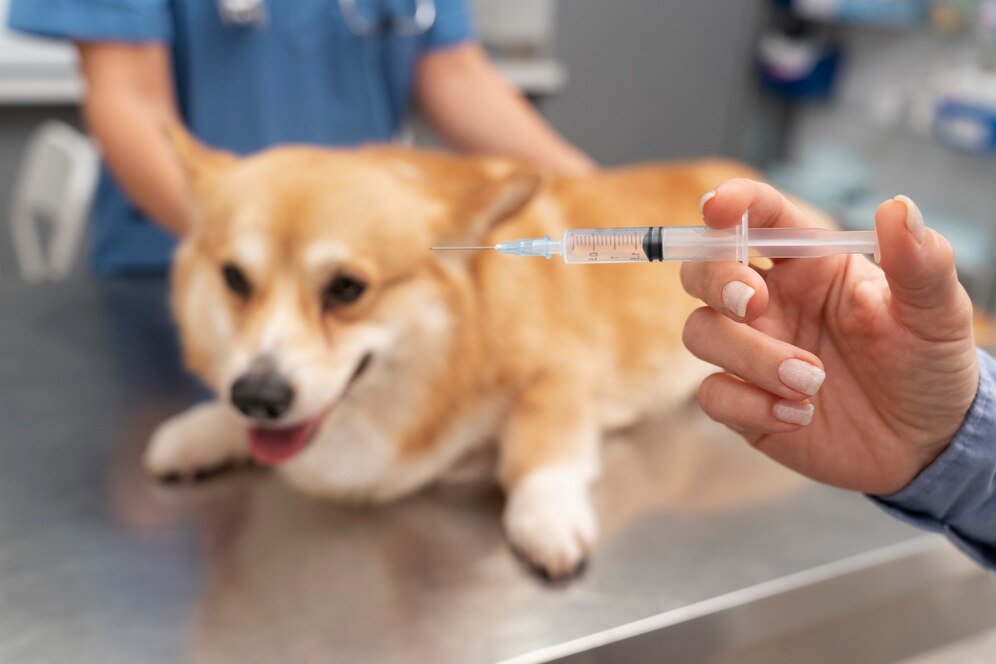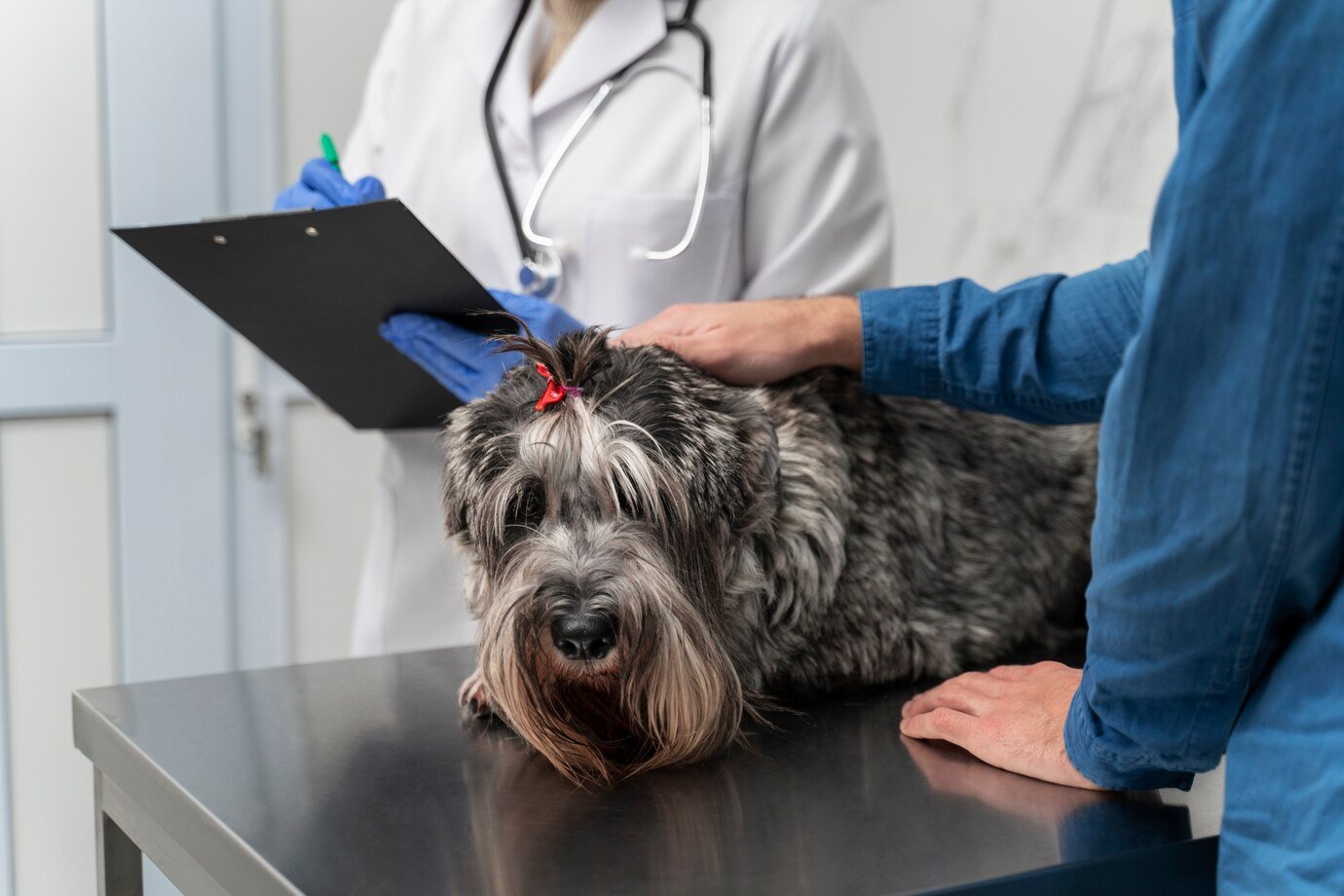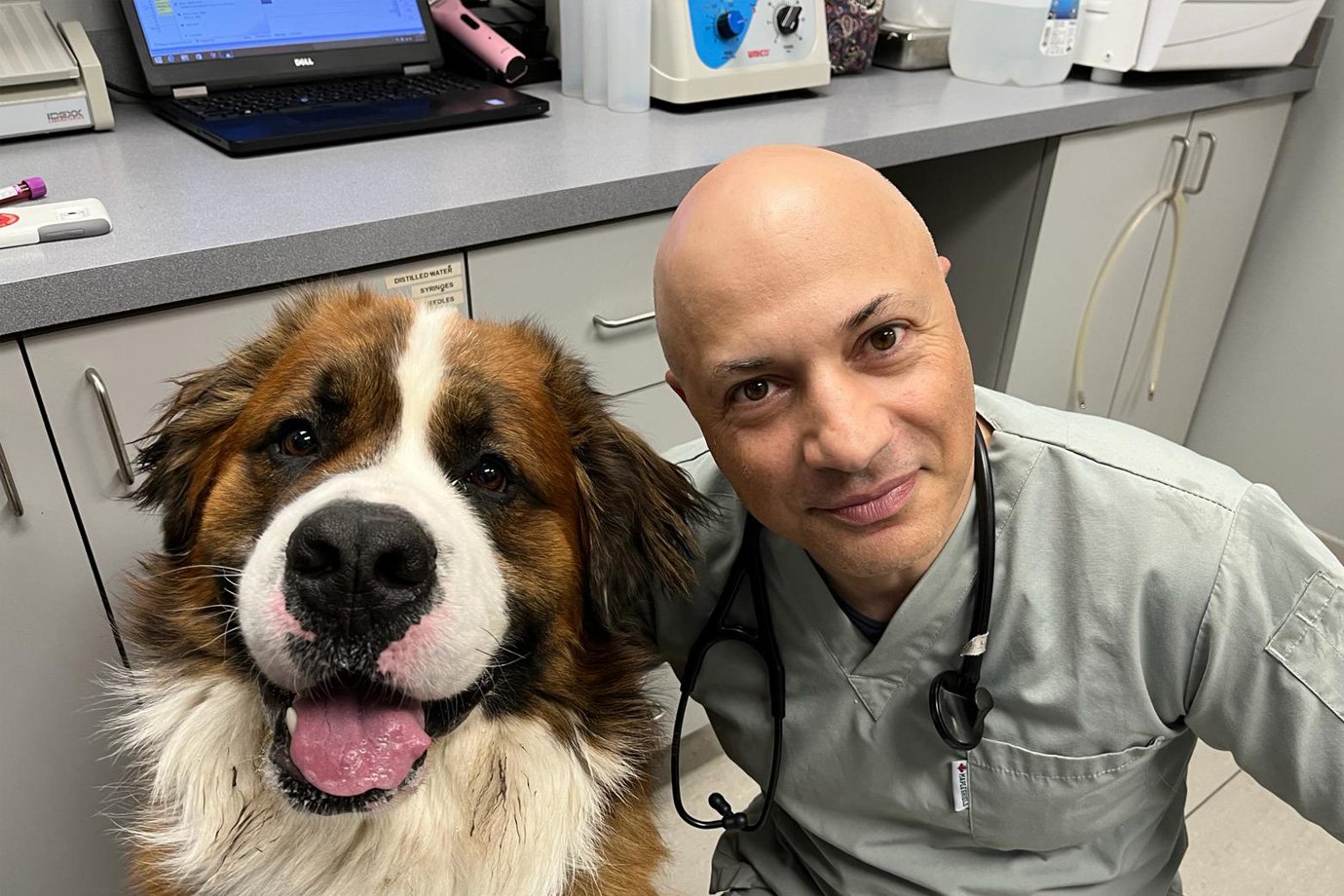VACCINATIONS FOR DOGS
Core vaccinations
Two primary vaccinations are strongly advised: the Rabies vaccine and the DHPP (Distemper, Hepatitis, Parvovirus, Parainfluenza) vaccine. Rabies shots are mandated by law for all dogs in Ontario. The DHPP vaccine, also referred to as DAPPv or DA2PP(v), is considered essential as it guards against four highly contagious viral diseases with severe consequences and no known cure.
In this region, another strongly recommended vaccination is against Leptospirosis. This illness spreads through raccoon urine, and due to the significant raccoon population in the area, safeguarding your dog against this disease is crucial.
In our clinic, the initial Rabies vaccination is valid for one year, while subsequent Rabies shots are administered every three years. DHPP and other non-core vaccinations, like Leptospirosis, are given annually.
Non-core vaccinations
There are several other types of vaccinations recommended based on lifestyle. These may include:
Bordetella / Kennel Cough vaccine
For dogs that are highly social and will frequently interact with other dogs, such as those attending training classes, doggy daycares, or boarding houses, the Bordetella bronchiseptica vaccination is recommended. This vaccination guards against kennel cough, a highly contagious viral infection characterized by persistent, forceful coughing, and sometimes accompanied by sneezing, runny noses, or eye discharge. Although similar to a human cold, kennel cough is often not severe and can resolve on its own within 4-6 weeks, or more quickly with a course of antibiotics.
Lyme vaccine
For dogs that are highly active outdoors, particularly in wooded areas, regions near water, or places with tall grass where ticks are prevalent, the Lyme disease vaccination is recommended. This vaccine helps safeguard against Lyme disease, a bacterial infection transmitted by ticks that can lead to various symptoms in dogs. It’s crucial to emphasize that even with vaccination, maintaining flea and tick prevention measures is highly advised.














